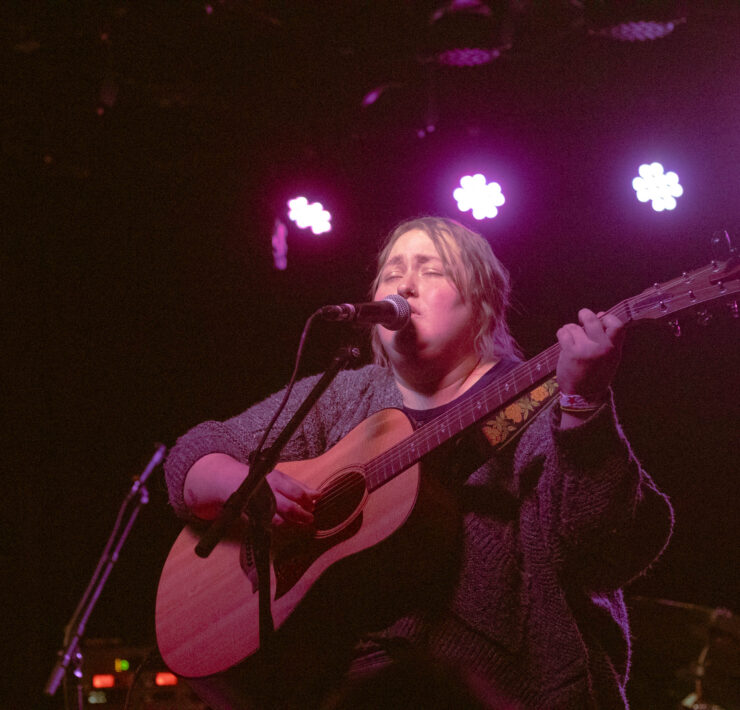Black, Queer Joy: Resilient, Rejuvenated, and Rested

For the first time in my life, I feel whole as a Black, queer woman. I no longer feel the need to conform or twist myself into what I think being queer “looks or feels like.” A lot of this is due to the fact that I learned what being queer means to me. In a society where I have always been considered a bit strange or unusual even outside of my sexuality, embracing my queerness along with my Blackness has allowed me to bloom.
It is not one or the other because my queer, femme identity and my Blackness are deeply rooted. Being in Denver for almost 10 months now, my perspective of being in my newfound home in regards to my sexuality has evolved. There is a Black, queer presence in Ohio, however, the representation of the variety of queer identity is not as common. In my experience, the traditional masculine and feminine roles can often overshadow visibility back home. Moving from one city to another, there is always the caution of “not being able to be visibly queer.” But coming from Cleveland, OH to Denver has made me feel more seen as a femme and a QWOC. I am able to be as femme and as masculine as my personality can reach. I see queer folks of all kinds, more variety in non-traditional relationship dynamics, and a general openness that the East Coast can lack.
Resilience in being
One thing I have noticed, though, is how small the Black community is, and how the Black, queer community is even smaller. But in my time in Denver, I have been able to connect with some captivating, queer, Black folks in the community. Our community. The conversations between me and those who understand my Black, queer identity are moments I cherish. It reinforces the freedom I feel by authentically living in my truth and seeing others do the same. The concept of living in your truth as a Black individual is often viewed as an act of resilience. The duality of being openly queer and visibly Black can be a target for those who aim to harm our communities. The act of being a leader in these spaces is another feat of it’s own. Often when you’re in communities that see you as “strong” and “powerful,” taking a moment to breathe doesn’t seem necessary. We are often seen as the ones who can make it happen.
Tara Jae, executive director at YouthSeen and also one of the amazing individuals who co-founded Denver’s first Black Pride, spoke about the need for more queer, Black joy. More Black, trans joy; more nonbinary joy. In my journey to find my own joy, one path I cannot escape is rest. In my opinion, the key to Black joy is rest and rejuvenation.
Oftentimes when we are described, we are defined by what we can do or what we have done–not who we are. There is something about the unspoken language of community leaders and the ambition that drives them. There is the need to create change; there is the need for leadership, but also, there is the need for rest, the need for joy, the need for rejuvenation. We are not defined by our positions of power, the certificates we hold, or the wealth we have attained. We are not our roles, our titles, our accolades. We can take off our superhero capes and slip into silk robes of luxury. This is a part of activism and community work that often gets lost. Who heals the healers?
Black Pride
Last month, OFM’s Brian Byrdsong spoke with some of our Black, queer, leaders. I followed up with Keo Frazier, another Black, queer femme about her inner-joy and how she defines rest and leadership. For Frazier, her rest is active. She describes herself as “a visionary who makes an impact that ripples.” She is the creator of New Thinkers, founded the $100 Giving-Club, and has done a variety of work for the Denver community. One hidden talent the community might not know is that she has been inventing since she was 4 years old. With dreams that run as far back as Pre-K, Frazier understands the perception of being an innovator. “When you’re an innovator, it gets lost on people until it makes sense.” As a creative, writer and activist myself, I know this familiar feeling all too well.
Oftentimes, the work to ignite change can be exhausting, as it is a marathon, not a sprint. When it comes to the idea of resting, this is often self-defined by what our bodies need. Sometimes you rest your body, and other times, you rest the soul. Frazier emphasizes the difference between resting your body versus resting your soul. The act of resting the soul, for her, involves pieces of self-care such as going to the gym, playing chess, adding new additions to her art and book collections, and traveling as often as she can. Resting the body is still work in progress for most of us, including myself. And she is no different. We spoke about the idea that often women are “too busy for rest.” As two individuals who focus a lot on healing and growth–there are times that you just want to breathe. Frazier describes this perfectly when she says, “I admire those people who can do nothing. I would like to be able to do nothing, even if just for a couple hours. I don’t want to grow all of the time. I just want to BE.” A sentiment myself and many other Black, queer individuals can relate to.
The desire to rest, rejuvenate and just BE should be a luxury all queer folks feel. We are not a monolith, and our stories are all very different, but one thing we all need more of is rest and rejuvenation. One cannot pour from an empty cup. We can be resilient and rested.
What's Your Reaction?
Brianna Janae is a queer writer, poet, and creative visionary. She uses her writing as a canvas of expression to create a picture for her audience—emphasizing activism, mental health, relationships, and the Black, femme experience. IG: @breezy.janae










